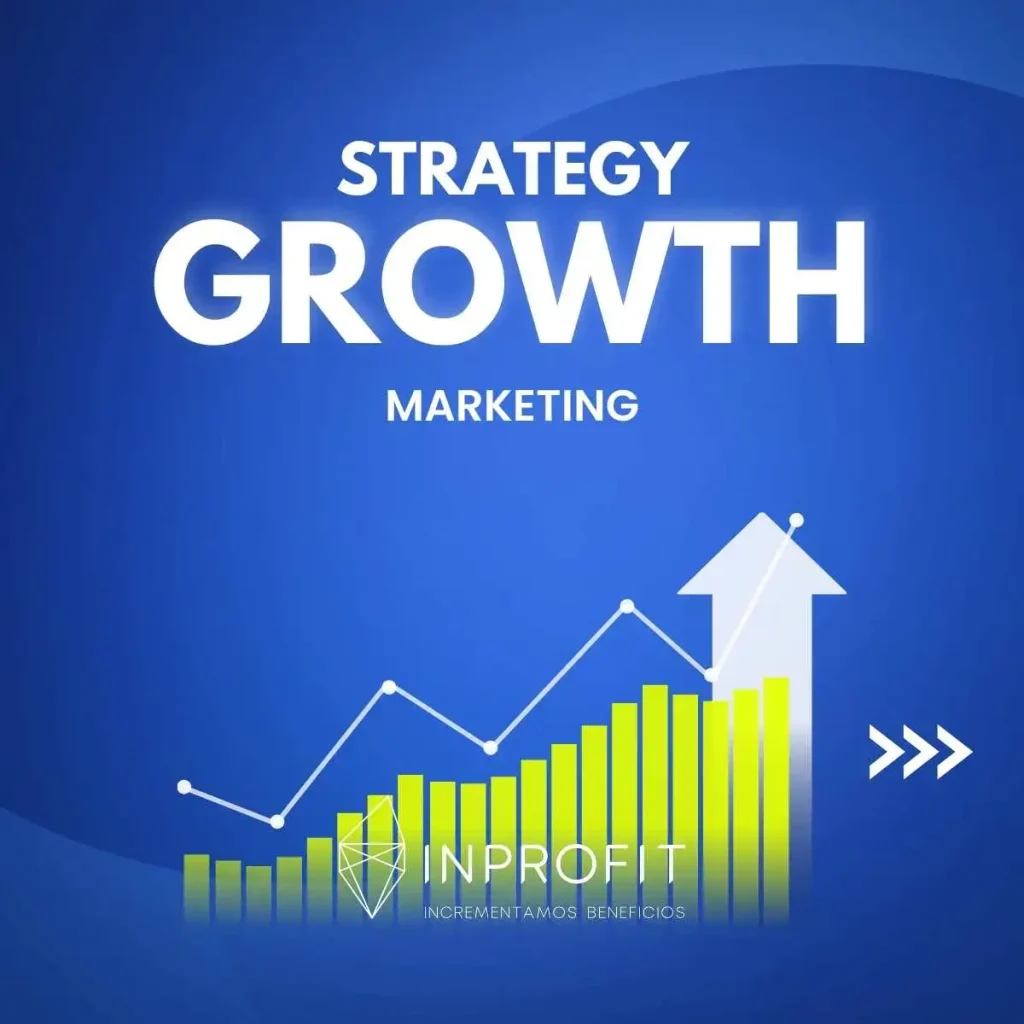Growth marketing differs from traditional marketing because it does not focus solely on attracting customers, but on designing a growth funnel based on constant experimentation, data analysis and continuous optimization. It is a performance-based approach, where every decision is based on metrics that maximize the profitability of the actions implemented.
In this article, we will explore some of the most effective growth marketing strategies to increase conversions and sales. We will also discuss the crucial role that a specialized sales agency plays in successfully implementing these tactics.
Why is Growth Marketing the trend that dominates the market?
Growth marketing has become a dominant trend in digital marketing because it offers an approach based on data, experimentation and continuous optimization. Unlike traditional strategies, which focus on traffic generation without a deep analysis of its impact on conversions, growth marketing seeks to maximize every user interaction with the brand, reducing acquisition costs and increasing loyalty.
Conversion Funnel Optimization (CRO)
One of the cornerstones of growth marketing is the optimization of the conversion funnel (Conversion Rate Optimization, CRO). This approach focuses on improving the conversion rate at each stage of the customer journey, ensuring that users interacting with a brand move through the buying process without friction.
To achieve this, various analysis and testing techniques are used, such as A/B testing, which allows different versions of a landing page, CTA or ad to be compared to determine which generates the best results. Other tactics includeheatmap analysis to understand user behavior on a website and form optimization to reduce friction in lead generation.
The goal is to minimize leak points in the funnel and maximize the efficiency of each user interaction with the brand. Companies like Amazon have perfected this process, continually optimizing their interfaces to eliminate any obstacles in the shopping experience.
Content marketing with a focus on growth
Content marketing is a fundamental part of any growth marketing strategy, but its application must go beyond simple traffic generation. To maximize conversions and sales, it is essential to create strategic content that guides the user through all stages of the conversion funnel.
A highly effective model is search intent-based content, which relies on keyword analysis and search trends to produce content aligned with user needs. This generates articles, guides and case studies that not only attract traffic, but also drive conversion.
In addition, the use of dynamic formats such as videos, webinars and interactive case studies has proven to be more effective than static content. B2B companies such as HubSpot have used content strategies based on education and value generation to position themselves as leaders in their industry and convert their visitors into paying customers.
Advanced personalization and audience segmentation
Advanced segmentation and personalization are essential elements of a successful growth marketing approach. In an environment where consumers expect relevant and personalized interactions, brands that manage to tailor their message to each user profile achieve significantly higher conversion rates.
To implement this strategy, technologies such as artificial intelligence (AI) and machine learning are used to analyze large volumes of data and predict user behavior. With tools such as advanced CRM, marketing automation and recommendation platforms, companies can deliver content and offers tailored to each user based on their browsing history, interests and purchasing behavior.
Brands such as Netflix and Amazon have perfected this model by using personalization algorithms to offer recommendations based on the consumption habits of their users, thus achieving a high level of engagement and loyalty.
Data-driven acquisition and retention strategies
Growth marketing not only focuses on attracting new customers, but also on optimizing their retention over time. To this end, acquisition and loyalty strategies are implemented based on data analysis and key metrics such as Customer Lifetime Value (CLV) and Churn Rate. Churn Rate.
In order to maximize customer acquisition, tactics such as performance marketing are used to performance marketingwhich combines paid advertising with real-time measurement to optimize investment in digital media. Channels such as Google Ads, Facebook Ads and LinkedIn Ads allow hyper-segmented campaigns with personalized messages, thus increasing the conversion rate.
On the other hand, customer retention is enhanced through automated email marketing programs, remarketing strategies and loyalty systems that incentivize repurchase. Companies like Spotify have successfully implemented these tactics by sending personalized recommendations to their users and reminding them of their subscription before they cancel the service.
Viral growth and referral programs
Viral growth strategies and referral programs have proven to be highly effective in growth marketing, as they leverage the power of word of mouth and customers’ own networks to attract new users.
Platforms such as Dropbox have used this approach by offering free storage space to users who recommend their service to friends and family. This type of strategy not only reduces customer acquisition costs, but also generates a more engaged and conversion-prone user base.
The importance of a sales agency in Growth Marketing
Implementing growth marketing strategies requires a high level of expertise and an approach based on data analysis, experimentation and continuous optimization. In this sense, having a specialized sales agency can make the difference between a moderate growth and an exponential scaling of the business.
Companies that implement growth marketing not only see an increase in sales, but also achieve stronger customer retention, which translates into long-term sustainable growth. The key to their success lies in real-time data analysis, marketing automation and continuous improvement based on experimentation.
A sales agency not only designs and implements customized strategies, but also provides advanced segmentation, automation and metrics analysis tools to maximize results. In addition, it allows companies to focus on their core business while marketing and conversion experts are in charge of effectively attracting, retaining and building customer loyalty.
In short, growth marketing is not a static process, but a dynamic approach that requires constant adaptation. Companies that opt for strategies based on data, personalization and conversion optimization will be better positioned to increase their sales and consolidate their position in an increasingly competitive market.
🚀 If your company is looking to scale its growth and improve its conversions, a sales agency specializing in growth marketing may be the strategic partner you need to achieve your goals.




